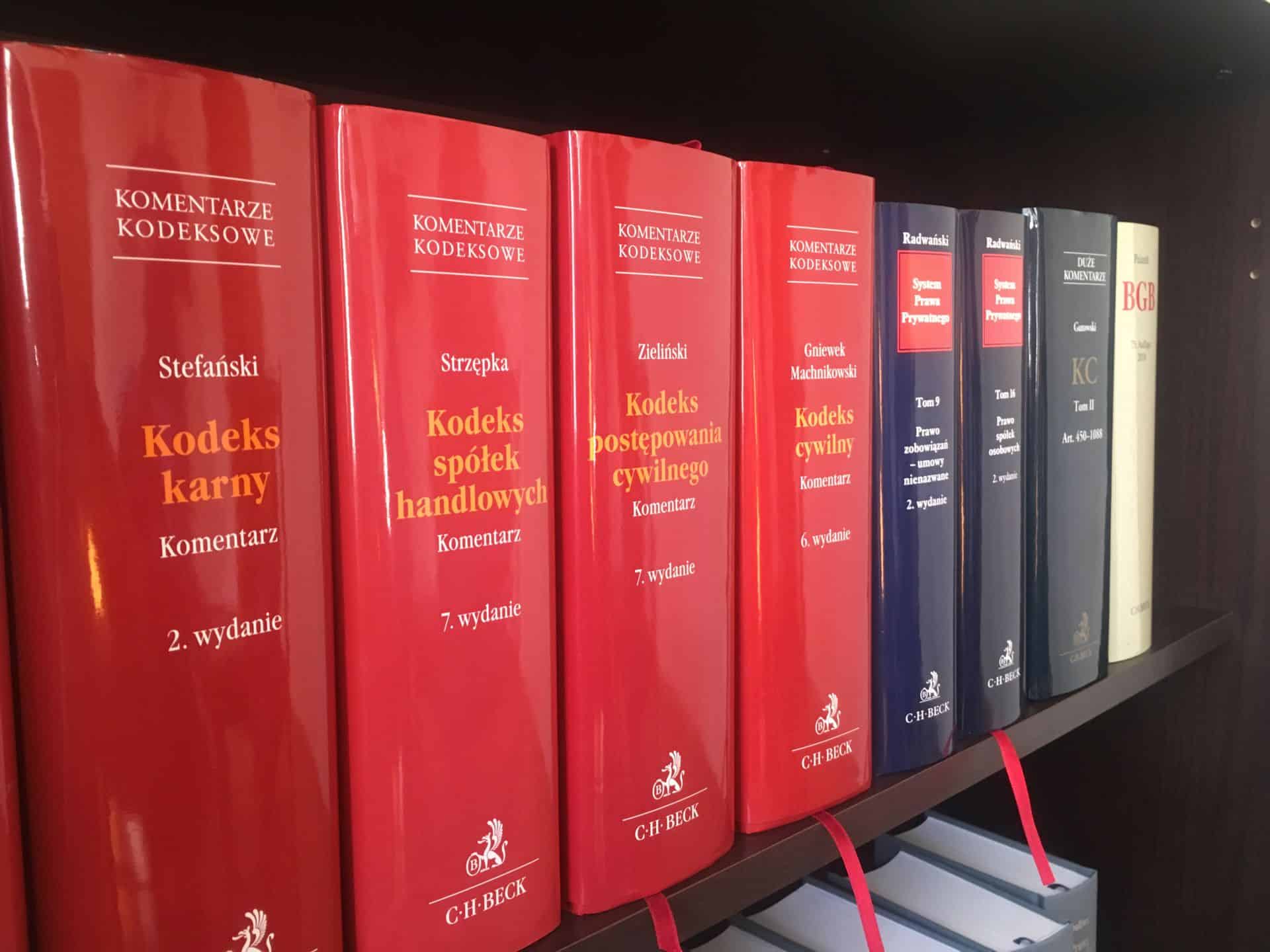
In einem Zivilprozess nach polnischem Recht zwischen Unternehmern hat der Gläubiger die Möglichkeit die Existenz seiner Forderung auf verschiedene Art und Weise nachzuweisen. Das Urteil erscheint vorhersehbar zu sein, wenn der Gläubiger eine durch die gegnerische Partei unterschriebene Rechnung (pol. faktura VAT) besitzt. Es stellt sich aber die Frage, über welche Möglichkeiten ein Unternehmer verfügt, wenn die Rechnung vom Schuldner nicht unterzeichnet worden ist und darüber hinaus kein schriftlicher Vertrag abgeschlossen wurde?
1) Zustellung einer Rechnung
Um nachzuweisen, dass die mit der Rechnung dokumentierte Forderung wirklich entstanden und fällig ist, kann der Unternehmer im Prozess nachweisen, dass der Schuldner die Rechnung zugestellt bekommen hat. Dies kann mit einem Nachweis der Versendung der Rechnung per Einschreiben oder per E-Mail erfolgen.
Warum ist dies ein wichtiger Beweis? Er zeigt, dass der Schuldner mit dem Inhalt der Rechnung sich anvertraute oder anvertrauen müsste und wenn er in irgendeiner Weise die Existenz der Forderung in Frage gestellt hat, sollte er dies – logisch denkend – unverzüglich nach Zustellung der Rechnung tun. Stellen Sie sich bitte die Frage – wenn Sie eine Rechnung für eine Dienstleistung o. Ware erhalten, die Sie nicht bestellt haben, was würden Sie tun? Sie würden bestimmt einen Brief o. E-Mail mit der Bitte um Klarstellung schreiben und die Rechnung zurückschicken. Der Schuldner sollte genauso handeln, wenn er die erhaltene Rechnung auf irgendeine Weise in Frage stellt.
Der Zustellungsnachwies einer Rechnung ist darüber hinaus sehr wichtig für die Geltendmachung von Ansprüchen aus dem Gesetz über Zahlungsfristen im Geschäftsverkehr (u.a. Zinsen).
2) Kontobücher des Schuldners
Alle Unternehmer sind dessen bewusst, dass jede erhaltene Rechnung ordnungsgemäß gebucht werden sollte. Dies sollte der Schuldner auch mit Ihrer Rechnung tun. Daher lohnt es sich immer in der Klage einen Antrag auf Verpflichtung des Beklagten zur Vorlegung eines Auszugs aus dem Steuerbuch zu stellen. Die Buchung einer Rechnung durch den Schuldner ist der Beweis dafür, dass er diese akzeptiert hat und daher auch ein Rechtsverhältnis besteht, aus dem die streitige Forderung resultiert.
3) Teilzahlung der Rechnung
Falls die Rechnungsforderung von dem Schuldner nur teilweise beglichen worden ist, ist dies ein Beweis dafür, dass ein Rechtsverhältnis zwischen den Parteien besteht. Legen Sie daher dem polnischen Gericht die Überweisungsbestätigung vor. Selbstverständlich sind die Details einer mündlichen Vereinbarung zwischen den Parteien (wie Fristen, Umfang etc.) Gegenstand eines Beweisverfahrens. Wichtig ist aber, dass der Schuldner die Existenz der Forderung nicht mehr bestreiten kann.
4) Geschichte der Geschäftskontakte
Falls es sich bei der unbeglichenen Rechnung nicht um die erste Rechnung handelt, die Sie dem Schuldner ausgestellt haben und alle früheren Rechnungen bis jetzt bezahlt worden sind, sollten Sie in der Klage das Gericht darauf aufmerksam machen. Dies ist wichtig, weil das Gericht bei der Feststellung eines Rechtsverhältnisses auch die bestehenden Kontakte und die Zusammenarbeit zwischen den Parteien berücksichtigen wird. Wichtig ist auch die Tatsache, dass der Schuldner die früheren Rechnungen bezahlt und nicht in Frage gestellt hat.
Falls Sie in der Vergangenheit ihrem derzeitigen Schuldner ohne einen schriftlichen Vertrag Rechnungen bereits ausgestellt haben und der Schuldner solche Rechnungen akzeptierte, bezahlte und dabei keine Formalisierung der laufenden Zusammenarbeit beanspruchte, bedeutet das, dass sich in Ihren Geschäftsbeziehungen besondere Regeln der Zusammenarbeit entwickelt haben. Gemäß dieser Regeln haben Sie eine weitere Rechnung ausgestellt, in der die Erfüllung einer bestimmten Leistung dokumentiert worden ist, die der Schuldner jedoch nicht bezahlt hat.
Die Geschichte der bestehenden Geschäftskontakte, sowie die entwickelten Regeln der Zusammenarbeit sind sehr wichtig für die Beurteilung des jeweiligen Sachverhaltes und der Feststellung eines zwischen den Parteien bestehenden Rechtsverhältnisses.
***
Natürlich sind die oben genannten Beispiele nur ein Teil der Möglichkeiten, mit denen die Existenz eines Anspruchs vor polnischen Gerichten nachgewiesen werden kann. Denken Sie daran, dass Sie auch Beweise in Form von Zeugenaussagen verwenden können. Am sichersten sind aber schriftlich abgeschlossene Verträge.
Bei Fragen zu Forderungen aus Rechnungen in Polen kontaktieren Sie uns bitte per E-Mail kontakt@kancelaria-pozniak.pl oder telefonisch unter +48 665 246 969.





Schreibe einen Kommentar